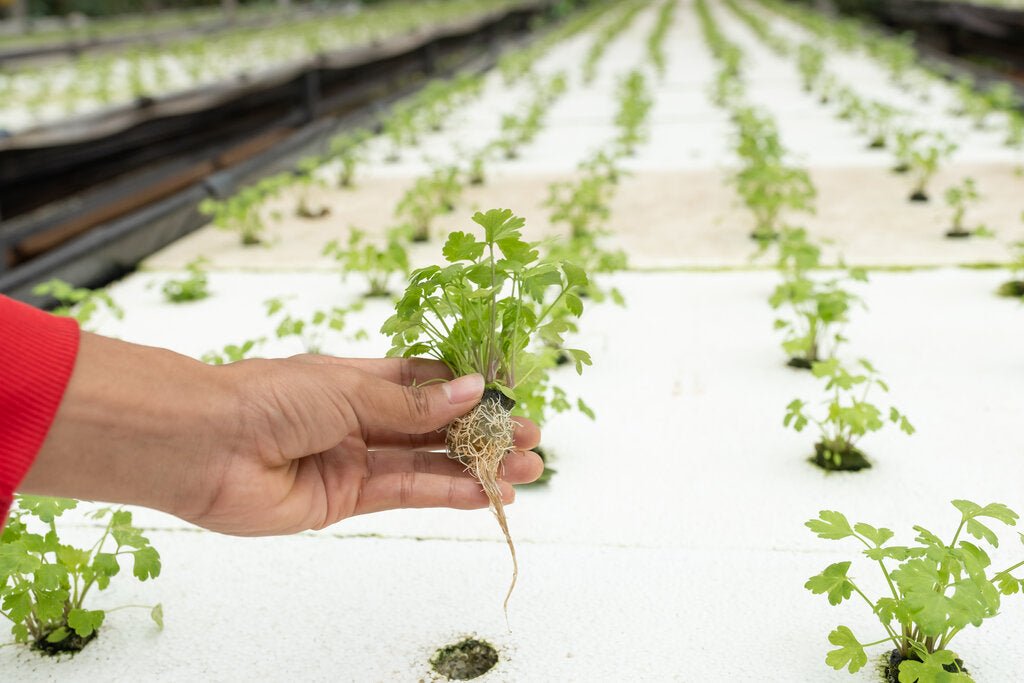Aquaponics is an innovative and sustainable method of gardening that seamlessly integrates aquaculture (raising aquatic animals) and hydroponics (growing plants without soil) to create a closed-loop, self-sufficient ecosystem. As concern for the environment and interest in sustainable living practices continue to grow, aquaponics presents a unique solution that not only harmoniously cultivates plants and aquatic organisms but also provides an opportunity to reduce waste, water usage, and the need for synthetic fertilisers. At Perfect Aquatics, one of the UK's largest aquatics specialists, we share your enthusiasm for sustainable practices and eco-friendly innovations, standing ready to assist you in exploring the incredible potential of aquaponics.
In this enlightening guide, we will delve into the benefits of aquaponics, touching upon its environmental advantages, economic benefits, and versatility. Learn how integrating this sustainable and low-maintenance approach into your gardening routine can boost productivity, foster aquatic harmony, and contribute to an eco-conscious lifestyle. As you embark on your aquaponics journey, let Perfect Aquatics be your partner in embracing synergy between gardening and aquatics, forming a mutual bond that benefits both nature and mankind.
Environmental Advantages: Water Conservation, Reduced Waste, and No Synthetic Fertilisers
Implementing an aquaponics system can result in several environmental benefits, helping to preserve precious natural resources and limit waste production:
- Water Conservation: Aquaponics is a closed-loop system that recycles water between the plant roots and the aquatic animals, promoting efficient water usage. Compared to traditional soil-based gardening methods, aquaponics uses significantly less water, contributing to water conservation efforts.
- Reduced Waste: The natural waste produced by aquatic animals serves as a natural fertiliser for the plants, while the plants in turn filter the water within the system, creating a harmonious cycle that minimises waste production. This symbiotic relationship eliminates the need for external waste disposal, reducing overall waste output.
- No Synthetic Fertilisers: Aquaponics' unique integration of aquaculture and hydroponics negates the need for synthetic chemical fertilisers, as the animal waste naturally provides nutrients for the plants. This results in a reduced environmental impact compared to conventional gardening practices that rely on chemical inputs.
Economic Benefits: Cost Efficiency, Space Optimisation, and Community Impact
By adopting an aquaponics approach, you can experience significant economic benefits and cost savings thanks to its efficient use of resources and space:
- Cost Efficiency: Although the initial set-up cost of an aquaponics system can appear substantial, the long-term savings generated by reduced water usage, decreased waste disposal costs, and the absence of synthetic fertilisers can ultimately lead to a more cost-effective approach to gardening.
- Space Optimisation: Aquaponics systems can be designed in a variety of sizes and configurations, allowing for the efficient use of available space. By vertically stacking grow beds and tailoring the system to your specific requirements, you can cultivate more plants in a smaller area compared to traditional gardening methods.
- Community Impact: Successful community-based aquaponics projects can strengthen local economies, create jobs, and provide fresh, locally-grown produce to residents. By investing in aquaponics, you can contribute to the sustainable growth of communities while enhancing food security and promoting healthy, eco-conscious lifestyles.
Versatility: Customisable Systems, Varied Crop Selection, and Indoor or Outdoor Options
The adaptable nature of aquaponics systems enables you to create tailored solutions for your specific needs, including customisable designs, diverse crop options, and both indoor and outdoor installations:
- Customisable Systems: Aquaponics systems can be customised to suit different scales, from small, home-based units to larger, commercial installations. By tailoring these systems according to your requirements, available space, and desired level of production, you can create a personalised solution that meets your unique gardening and aquaculture needs.
- Varied Crop Selection: A wide range of plant species, including vegetables, herbs, and ornamental plants, can be successfully cultivated using aquaponics. Similarly, several aquatic animal species, such as tilapia, catfish, and shrimps, can thrive within these systems, allowing you to create a diverse and productive ecosystem.
- Indoor or Outdoor Options: Aquaponics is an adaptable method of sustainable gardening that can be implemented either indoors or outdoors, depending on factors such as climate, available space, and personal preferences. This flexibility offers remarkable versatility for those interested in exploring the exciting world of water-wise planting and aquaculture.
Conclusion
By embracing the numerous benefits of aquaponics, you can create a sustainable and eco-friendly approach to gardening that harmoniously combines plant cultivation and aquatic animal rearing in a way that benefits both nature and our resources. With its unique combination of environmental sustainability, economic potential, and versatile design options, aquaponics offers an exciting opportunity to revolutionise our approach to gardening and food production, setting the stage for a greener, healthier future.
As you embark on your aquaponics journey, Perfect Aquatics stands ready as your partner, offering expert advice, a range of aquaponics products, and unwavering support to ensure your aquatic ecosystem thrives. Together, we can cultivate a sustainable and prosperous future that benefits us all.
Discover the incredible potential of aquaponics with Perfect Aquatics' expert guidance, innovative solutions, and commitment to empowering a sustainable, eco-friendly approach to gardening and aquaculture. Check out our aquatics store in Bedfordshire now.
